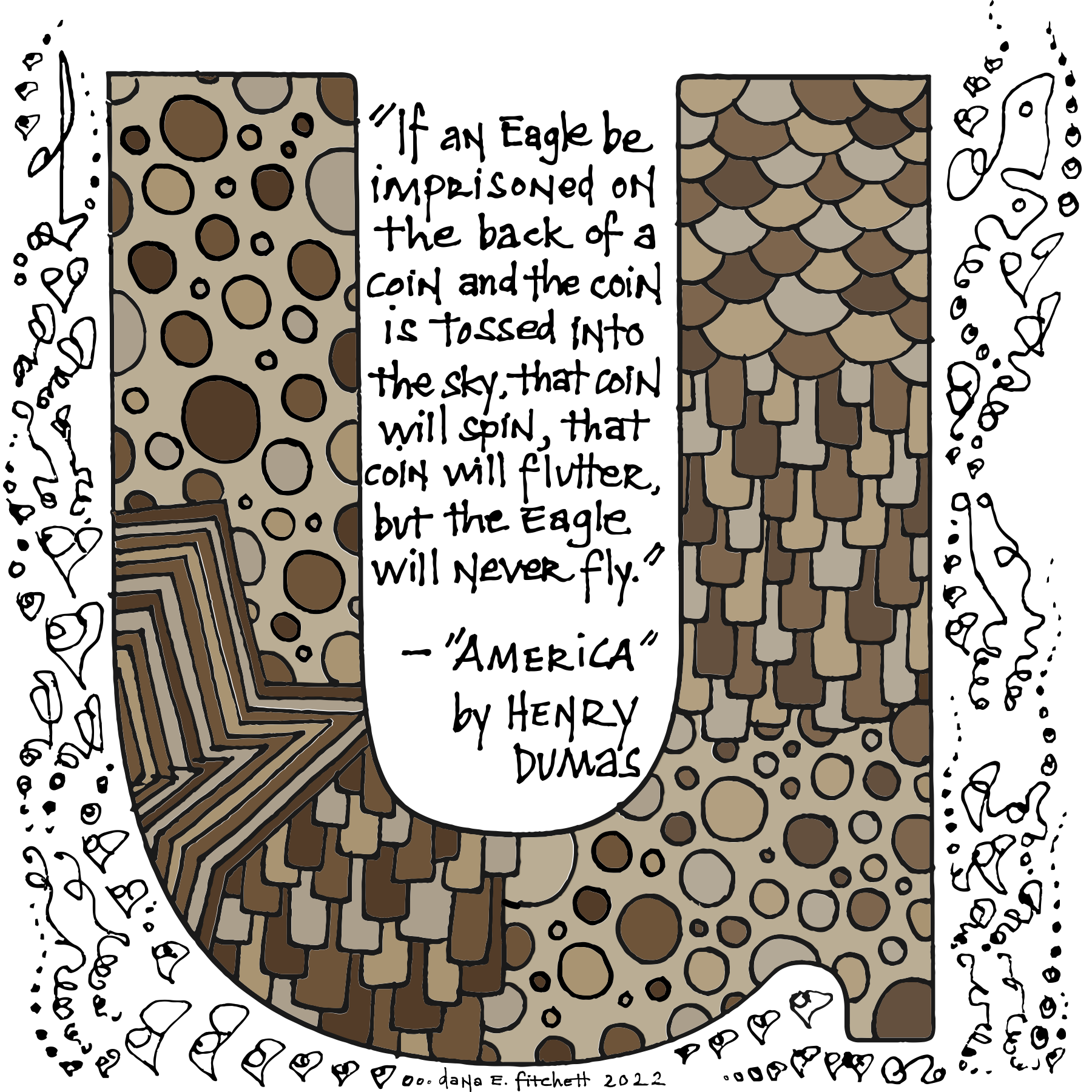Utile celebrates Black History Month with a reimagined logo from Dana E. Fitchett
February is Black History Month! As part of our ongoing Justice, Equity, Diversity, and Inclusion (JEDI) initiative, we continue to engage with a diverse group of talented artists to reimagine Utile’s logo to honor commemorative observance months throughout the year. We’re excited to present new artwork by doodle artist Dana E. Fitchett, who drew inspiration from poetry by Henry Dumas to create this incredible interpretation for Black History Month. Thank you Dana E. Fitchett for your beautiful work!
Statement from the Artist:
“As someone who expresses in more abstract/less “representative” ways, I’m grateful for the Utile team’s openness and flexibility, which allowed me to remain true to my creative voice while reinterpreting the Utile logo.
I centered this piece around a poem by Henry Dumas, Black American writer and activist. His body of work, passion, and story all deserve a firm and far-reaching place in the collective American imagination, yet he’s known to relatively few.
On his way home from a rehearsal with Sun Ra, returning to his wife and two sons—both under 10 years old—Dumas was murdered by a white police officer on a New York subway platform—supposedly a case of mistaken identity. The date was May 23, 1968. Dumas was 33. He had recently written a scathing, seething, and ultimately haunting poem about the assassination of Martin Luther King, Jr., just weeks before Dumas was killed. In the piece, called “Our King Is Dead,” Dumas says, “Our kings are dying / and I too am dead / I too am dead / now listen to the voice of the dead.”
I hear Dumas’ call and I listen to the voices and the brilliance of those who came before, who lived in such familiar but distinct conditions. There’s so much to learn and pass forward. I see my creative work as a tool of liberation, and this passing on of African Diasporic oral history is central to my mission.
This particular Dumas poem, “America,” resonates on a visceral level. When I interrogate why this poem lands so clearly, I see the power in the simple metaphor that Dumas offers. I understand Dumas to be pointing to the experience of Black Americans in a country that founded its present-day economic and political structures on the extraction of our people from Africa, the exploitation of our labor, and the attempted destruction of our cultures, families, and spirits. And while none of these weapons formed against us have fully prospered, the nation itself won’t heal until we truly reckon with the ugliest parts of our history and reimagine what it means to live together and to actually guarantee all people the right to life, liberty, and the pursuit of happiness. Like the eagle in Dumas’ “America,” all efforts at reform in the meantime will never fly.“
